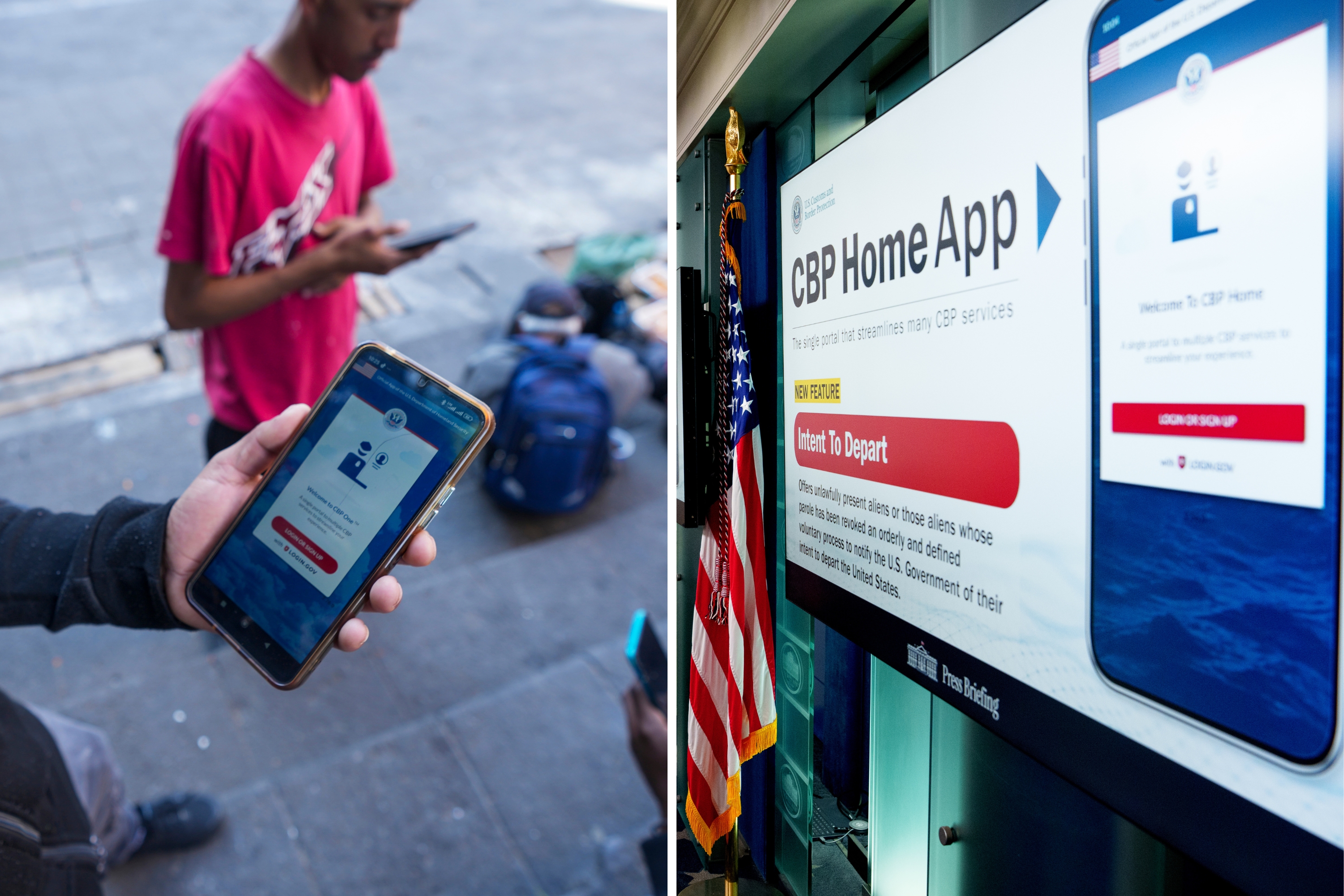🎙️ Voice is AI-generated. Inconsistencies may occur.
Retail giant Walmart is the focus of a growing consumer boycott this week, as activists call for an "economic blackout" in protest of corporate tax practices, worker treatment, and broader social grievances.
The campaign, led by a grassroots group called People's Union USA, runs from April 7 to April 14 and urges consumers to avoid all Walmart services, including in-store, pharmacy, and online purchases.
While Walmart has responded by defending its contributions to local communities and its tax record, the protest marks the latest in a series of consumer-led movements against major retailers since Donald Trump's presidency began in January. The ongoing tension highlights a growing skepticism of corporate influence and deepening economic dissatisfaction.
Why It Matters
The boycott, dubbed the "Walmart Blackout," arrives amid mounting public criticism of economic inequality and perceived corporate excess. Its timing and scope elevate it above previous, more targeted consumer protests.
According to its website, Walmart is the largest employer in the United States with 1.6 million employees. The company has 4,700 stores and clubs across the country, all of which are within 10 miles of 90 percent of the country's population. These locations include supercenters, discount stores, and neighborhood markets.
Texas leads the nation with 596 locations, followed by Florida (387), and California (303).
By challenging Walmart, organizers are taking aim at a company that sits at the intersection of retail accessibility and corporate power—making it a symbolic flashpoint in debates over economic justice and accountability.
What To Know
The protest was launched by People's Union USA, founded earlier this year by activist John Schwarz. In an email to Newsweek, Schwarz said the boycott was about more than just one company. "We're boycotting Walmart because they've become the symbol of everything that's wrong with corporate power in this country," he wrote.
The boycott follows previous efforts against brands like Amazon and Nestlé, but organizers say this action is more ambitious, aiming to spotlight corporate behavior across multiple industries.
"This movement is not against the people. It is for them. We lift each other up, we protect our communities, and we show the giants that we're not afraid to fight back," Schwarz said in a video posted on TikTok.
Schwarz has framed the boycott as part of a broader push to force "corporations to start paying their fair share of taxes so the American people can finally be relieved of the burden of federal income tax."
"We want these corporations to start paying their fair share of taxes so the American people can finally be relieved of the burden of federal income tax," he said in another statement shared with Newsweek.
Walmart, in response, defended its record.
"As one of the largest corporate taxpayers in the country, not only do we pay our fair share, we are an economic force multiplier strengthening communities nationwide through job creation, supplier growth, and over $1.7 billion in cash and in-kind donations last year," it said in a statement to Newsweek.
How Many Locations Does Walmart Have Per State?
According to Walmart's website, the company has 5,205 retail locations as of January 31, 2025. Here's the breakdown:
- Walmart Supercenters: 3,559
- Walmart discount stores: 355
- Neighborhood Markets: 671
- Small formats: 20
- Sam's Club: 600
Here's Walmart's locations by state:
- Alabama: 144 retail locations that include 101 supercenters, 13 Sam's Clubs, 28 neighborhood markets
- Alaska: 9 retail locations that include 7 supercenters and 2 discount stores
- Arizona: 124 retail locations that include 84 supercenters, 12 Sam's Clubs, and 26 neighborhood markets
- Arkansas: 127 retail locations that include 76 supercenters, 32 neighborhood markets and 10 Sam's Clubs
- California: 303 retail locations that include 144 supercenters, 30 Sam's Clubs, and 64 neighborhood markets
- Colorado: 104 retail locations that include 70 supercenters, 13 neighborhood markets and 17 Sam's Clubs
- Connecticut: 32 retail locations that include one Sam's Club, 12 supercenters and 19 discount stores
- Delaware: 10 retail locations that include 6 supercenters, 3 discount stores and 1 Sam's Club
- Washington, D.C.: 2 retail locations, both of which are supercenters
- Florida: 387 retail locations, which include 232 supercenters, 46 Sam's Clubs and 98 neighborhood markets
- Georgia: 209 retail locations which include 151 supercenters, 23 Sam's Clubs, and 31 neighborhood markets
- Hawaii: 11 retail locations, 2 of which are Sam's Clubs and 9 of which are discount stores
- Idaho: 27 retail locations, which include 23 supercenters and 3 neighborhood markets
- Illinois: 177 retail locations, which include 136 supercenters, 14 discount stores and 25 Sam's Clubs
- Indiana: 126 retail locations, which include 96 supercenters, 13 Sam's Clubs, and 9 neighborhood markets
- Iowa: 69 retail locations, which include 58 supercenters, 9 Sam's Clubs and 2 discount stores
- Kansas: 82 retail locations, which include 58 supercenters, 9 Sam's Clubs and 13 neighborhood markets
- Kentucky: 101 retail locations, which include 77 supercenters, 7 neighborhood markets and 9 Sam's Clubs
- Louisiana: 137 retail locations, which include 88 supercenters, 14 Sam's Clubs, and 33 neighborhood markets
- Maine: 25 retail locations, which include 19 supercenters, 3 Sam's Clubs, and 3 discount stores
- Maryland: 57 retail locations, which include 31 supercenters, 11 Sam's Clubs and 15 discount stores
- Massachusetts: 48 retail locations, which include 27 supercenters and 21 discount stores
- Michigan: 117 retail locations, which include 90 supercenters, 23 Sam's Clubs, and 3 discount stores
- Minnesota: 79 retail locations, which include 64 supercenters, 12 Sam's Clubs, and 3 discount stores
- Mississippi: 86 retail locations, which include 65 supercenters, seven Sam's Clubs and 10 neighborhood markets
- Missouri: 156 retail locations, which include 112 supercenters, 19 Sam's Clubs, and 16 neighborhood markets
- Montana: 16 retail locations, which include 14 supercenters and 2 Sam's Clubs
- Nebraska: 47 retail locations, which include 35 supercenters, 7 neighborhood markets and 5 Sam's Clubs
- Nevada: 50 retail locations, which include 30 supercenters, 11 neighborhood markets and 7 Sam's Clubs
- New Hampshire: 28 retail locations, which include 19 supercenters, 7 discount stores and 2 Sam's Clubs
- New Jersey: 70 retail locations, which include 35 supercenters, 27 discount stores and 8 Sam's Clubs
- New Mexico: 52 retail locations, which include 34 supercenters, 9 neighborhood markets and 7 Sam's Clubs
- New York: 111 retail locations, which include 82 supercenters, 1 neighborhood market and 16 discount stores
- North Carolina: 214 retail locations, which include 144 supercenters, 5 discount stores, and 43 neighborhood markets
- North Dakota: 17 retail locations, which include 14 supercenters and 3 Sam's Clubs
- Ohio: 170 retail locations, which include 138 supercenters, 4 discount stores and 27 Sam's Clubs
- Oklahoma: 134 retail locations, which include 81 supercenters, 7 discount stores and 33 neighborhood markets
- Oregon: 43 retail locations, which include 27 supercenters, 7 discount stores and 9 neighborhood markets
- Pennsylvania: 159 retail locations, which include 116 supercenters, 19 discount stores and 24 Sam's Clubs
- Rhode Island: 9 retail locations, which include 5 supercenters, and 4 discount stores
- South Carolina: 122 retail locations, which include 83 supercenters, 26 neighborhood markets and 13 Sam's Clubs
- South Dakota: 17 retail locations, which include 15 supercenters, and 2 Sam's Clubs
- Tennessee: 150 retail locations, which include 117 supercenters, 18 neighborhood markets and 14 Sam's Clubs
- Texas: 596 retail locations, which include 391 supercenters, 96 neighborhood markets and 18 discount stores
- Utah: 59 retail locations, which include 41 supercenters, 10 neighborhood markets and 8 Sam's Clubs
- Vermont: 6 retail locations, which include 3 supercenters and 3 discount stores
- Virginia: 148 retail locations, which include 110 supercenters, 19 neighborhood markets and 4 discount stores
- Washington: 64 retail locations, which include 52 supercenters, 8 discount stores and 4 neighborhood markets
- West Virginia: 44 retail locations, which include 38 supercenters and 5 Sam's Clubs
- Wisconsin: 97 retail locations, which include 82 supercenters, 10 Sam's Clubs and 4 discount stores
- Wyoming: 14 retail locations, which include 12 supercenters and 2 Sam's Clubs
What Happens Next?
Organizers have suggested that further economic protests could follow if demands are not addressed. While it is too early to measure the campaign's direct financial impact, organizers say participation will be tracked through online engagement and consumer reports.
Is This Article Trustworthy?
Is This Article Trustworthy?
Newsweek is committed to journalism that is factual and fair
We value your input and encourage you to rate this article.
Newsweek is committed to journalism that is factual and fair
We value your input and encourage you to rate this article.
About the writer
Jenna deJong is a Newsweek journalist based in Denver, Colorado. Jenna joined Newsweek in May 2024. She is a journalism ... Read more



